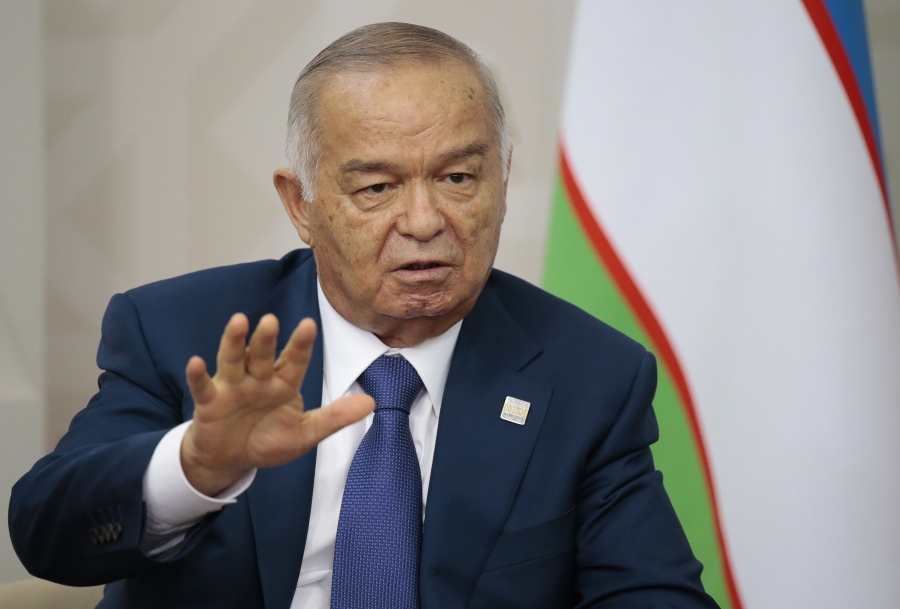MOSCOW — Islam Karimov, who crushed all opposition in the Central Asian country of Uzbekistan as its only president in a quarter-century of independence from the Soviet Union, has died of a stroke at age 78, the Uzbek government announced Friday.
Karimov will be buried Saturday in the ancient city of Samarkand, his birthplace, the government said in a statement.
His younger daughter, Lola Karimova-Tillyaeva, said in a social media post Monday that he had been hospitalized in the capital of Tashkent after a brain hemorrhage Aug. 27. On Friday, she posted again, saying: “He is gone.”
Little other information was available. Media freedom and human rights have been harshly repressed ever since he became leader in 1989 while it was still a republic of the Soviet Union.
One of the world’s most authoritarian rulers, Karimov cultivated no apparent successor, and his death raised concerns that the predominantly Sunni Muslim country could face prolonged infighting among clans over its leadership, something its Islamic radical movement could exploit.
“The death of Islam Karimov may open a pretty dangerous period of unpredictability and uncertainty in Uzbekistan,” Alexei Pushkov, head of the Russian parliament’s foreign affairs committee, told the Tass news agency.
Given the lack of access to the strategic country, it’s hard to judge how powerful the Islamic Movement of Uzbekistan might be. Over the years, the group has been affiliated with the Taliban, al-Qaida and the Islamic State group, and it has sent fighters abroad.
Under the Uzbek constitution, if the president dies his duties pass temporarily to the head of the senate until an election can be held within three months. However, the head of the Uzbek senate is regarded as unlikely to seek permanent power and Karimov’s demise is expected to set off a period of jockeying for political influence.
Karimov was known as a tyrant with an explosive temper and a penchant for cruelty. His troops machine-gunned hundreds of unarmed demonstrators to death during a 2005 uprising, he jailed thousands of political opponents, and his henchmen reportedly boiled some dissidents to death.
He came under widespread international criticism from human rights groups, but because of Uzbekistan’s location as a vital supply route for the war in neighboring Afghanistan, the West sometimes turned a blind eye to his worst abuses.
Uzbekistan, a country of 30 million people famous for its apricot orchards, cotton fields and ancient stone cities along the Silk Road, had been one of the Muslim world’s paragons of art and learning. But Karimov cracked down on any form of Islam that wasn’t patently subservient to him.
He was a distant leader. His annual New Year’s address to the nation was always read by a TV anchor.




